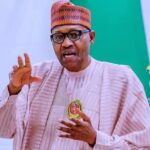In one of the pieces I wrote on this subject last year, I concluded as follows: ‘The battle lies ahead, next year, when party primaries will be held to elect candidates for the 2023 elections. Already to downplay the influence of the governors, the new electoral bill has provisions for direct elections at the primary elections. I am sure that part of the bill is being scrutinised intensely in the inner recesses of many government houses. I guess the president might sign the bill and the governors would have to find ways and means to deal with it.’ I was right and I was wrong too.
The draft bill was indeed scrutinised in the inner recesses of the government houses without any exception, and across party lines. Of course the governors took a rather dim view of the provisions for compulsory direct elections in the conduct of primary elections. They, most probably, saw it as the ultimate Trojan horse surreptitiously drawn into the bill to thwart their stranglehold on their parties. Even before the bill left the doors of the National Assembly on its way to the Presidential villa, the governors were up in arms against it. The governors were vehemently against the bill with at least one of them promising to go to court if and when the president assents the bill.
- Rent: Senate bill seeks 3-month jail, N1m fine for defaulting landlords
- ‘Bandit’ gunned down in attack on Kogi Police Station
I was patently wrong in my assumption that the president would agree to assent the bill. Obviously I had underestimated the influence the governors have garnered over the years. They now completely dominate the parties and all other nooks and corners of the political space. The PDP’s recent party elections were a clear pointer to the governors new found powers. Readers might recall that even before the party elections the governors had huddled together to fill the most important party post, the chairman’s, with their consensus candidate. They did the same with the party secretary’s post where they got their way, willy-nilly, by dispensing with the challenge posed by heavyweights such as former Governor Olagunsoye Oyinlola, and David Mark, the longest serving Senate President when PDP was the party in government.
As for the APC, the influence of the governors is too glaring to warrant elucidation. It is so obvious that the party has not been able to entrust the chairman’s post to anyone since Adams Oshiomhole, a former governor, bowed out in June 2020. The party has since been run by a sitting governor in an acting capacity. And as the party election beckons this month, pundits are waging their last Naira that it would be another former governor that would be installed as chairman. As we await that day the odyssey of the Electorate Act Amendment Bill has also taken another turn. As many have expected, the earlier bill was rejected by the president for reasons that have been in the media space and would not warrant repetition here.
On receiving the rejection missive from the president, members of the National Assembly have taken the corrections in their strides. They decided to agree with the president by recommitting the bill to fresh legislation, and liberalising the process by adding other options of electing candidates in the primary elections. The primary elections can now hold using the mode of all the three options suggested by the president – direct, indirect and consensus. The authenticated copy of the Electoral Bill 2022 is already in the villa for the president to assent.
However, on closer look at the reworked bill that is now in the open, I could see some aspects that could cause anguish to some stakeholders. The bill is not a carte blanche as most are suggesting. The National Assembly has given sufficient and clear definitions to the modes of primary elections plus detailed procedure on how the elections will be conducted. Some of the clauses would not be easy to live down. In particular, the consensus option that had in many instances in the past been the object of choice for the governors will henceforth be difficult to operate.
On the consensus option, the reworked bill says: “A political party that adopts a consensus candidate shall secure the written consent of all cleared aspirants for the position, indicating their voluntary withdrawal from the race and their endorsement of the consensus candidate.” And, “Where a political party is unable to secure the written consent of all cleared aspirants for the purpose of a consensus candidate, it shall revert to the choice of direct or indirect primaries for the nomination of candidates for the aforesaid elective positions.”
This time around I would dispense with the indulgence of guessing the president’s mind. I would not hazard a guess on whether the president would sign the bill as it is or not, but I pray he will. There are so many other amendments in the bill to smoothen the operations of INEC and allow for a more transparent election such as the electronic transmission of election results. INEC is eagerly awaiting the president’s assent to the bill. Egoistic warfare on mode of primary elections should not justify throwing away a bill that has been at the works for this long.

 Join Daily Trust WhatsApp Community For Quick Access To News and Happenings Around You.
Join Daily Trust WhatsApp Community For Quick Access To News and Happenings Around You.


